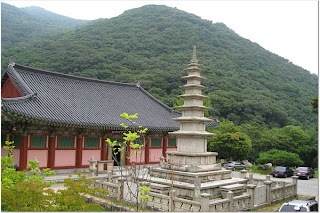I visit the Social Welfare Center in Busan where I went right after I was found in a park in Dongrae. Here are the questions I have for the people there:
- Where is the park where I was found? Answered.
- Why did I go up to Seoul? Was it because I was sick? Not answered fully.
- How long was I at the orphanage? Answered, but later disputed.
- Is there more information about the man who found me? No, but to be continued, potentially.
- Were there a lot of babies in the orphanage at the time? Answered.
- If my name and birthday were pinned to me, how much of an attempt was there made to find out who left me at the park? Answered.
- Are the children still housed in this facility? Answered.
The man said I was at the center for about 20 days, but that the original place where I stayed has burned down. There is a new building behind the office where we met that I can see. I see no babies there when we visit. But the worker mentions that due to the new Korean policy of reducing international adoptions by 10% each year, there are more and more babies that grow up in orphanages in Korea and that they have a difficult time finding jobs when they graduate so they must go to "rehab" in the mean time.
******************************************************
You know when you smell something bad or just get a hint of it? You have a choice of whether to breathe in more deeply, to make sure of what it is, or you can breathe more shallow to avoid it altogether.
I wondered if researching a painful past is like that or like finally taking a look at a wound healed badly and asking that it be medically examined re-opened and healed more cleanly. The scar remains, but it's more deliberate, possibly any infection has been cleaned out and you can move on.
I have many questions about the value of uncovering painful adoption information.
*****************************************************
I found out that part of my adoption story is a lie. It felt like someone ripping my teddy bear away or acknowledging that it was only old stuffing, dirty fur and plastic disks for eyes. I found out my birth name and birthday were not pinned to me. They are unknown. The orphanage made them up. They guessed my age. It was a matter of processing paper work and making money. Dr. Park spoke of feeling anger when the adoption worker spoke of the profit angle surrounding the abandoned babies.
Note: My birthday, November 25, was significant to my parents as this is the exact day they first visited an orphanage while living in Korea. When they saw it on my papers, it immediately gave them the sign they were looking for in selecting me, rather than another girl. They had been presented with the choice between the 2 of us. It always felt like a connection between my birth parents and my parents. My parents also almost named me, Nancy, as my birth name was presented to them as "Hong, Ran Soo."
The social welfare man printed out a map to the location where I was found in Dongrae. At this point, this map launched a whole "Law and Order' episode-type aura--as we began our quest to locate information about the man who found me in the park, Mr. Shin Hong Kyoon. This social welfare center was the first location / time black screen with the distinctive punctuation, "BA-bong!"
Here is a transcript of the information from the police report taken at the time I was brought to a police station:
"The baby was found on the 10th of June 1971 at 10:30 p.m. The place found for the first time was at the front of Keum Kang Park (Geumgang Park). The climber (hiker) named Mr. Shin Hong Kyoon was at the age of 44 years old. His address was #335 Onchun-dong, Dongrae-ku (Dongnae-gu). He found the baby. He was referred to the Dongrae Police."
At the same time, when Dr. Park was explaining in Korean about my status as an adoptee, I received sympathetic looks of curiosity or in some cases avoidance of eye contact / shame from every listener. I felt like a child or someone who was diagnosed with a terrible disease. It had the feeling of being lead from office to office in a hospital, chasing a diagnosis or treatment plan. Each person feeling helpless and sad, and wanting to be candid yet helpful.


We were off to Dongrae. But before Dongrae, we decided to stop at the temple which was the next train stop. There we ran into the rest of our group and surprised them as they were expecting us to be far away on our mission. We were plunged into the Korea from which I had formerly not felt culture shock:

- Squattie potties (Thanks to June for this picture!)
- Buddhist practices
- Hunger, satisfied with food I wold not have ordered on my own, a free temple meal of vegetarian bee-bim-bop, chilled water soup with seaweed and julienned cucumbers
- A cafeteria that smelled like the sea at low tide
- Ancient gates and legends
- Steep stone steps to prayer rooms
- Translations that Dr. Park would kindly relay even if the phrases were originally spoken or written in English
- Meeting a young traveler from Taiwan who was incorporated into our 45-minute tour given by a generous Temple volunteer.


No comments:
Post a Comment